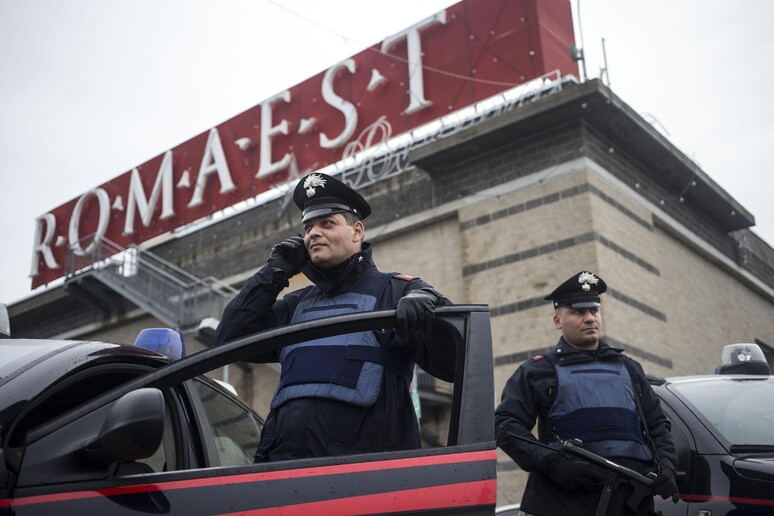Security measures have been
stepped up at underground and railway stations, airports,
monuments and tourist sites across Italy following the terror
attacks in Brussels on Tuesday that left 32 confirmed dead and
injured 300.
Security measures have been beefed up in Rome ahead of the
Easter weekend, when Pope Francis will lead ceremonies usually
attended by tens of thousands across the city. Rome Prefect
Franco Gabrielli said there were plans to introduce metal
detector tests at metro stations. In Milan, Prefect Alessandro
Marangoni has said all railway and underground stations need
extra attention, while in Florence more checks are planned at
the airport and areas around tourist sites. In Bologna,
surveillance has increased at all sensitive areas, including the
central train station and the airport.
Several southern Italian airports have introduced new
security measures. In Catania in Sicily, only people with an
airplane ticket are being allowed into the Fontanarossa airport.
Palermo airport has strengthened security with sniffer dogs and
extra external controls. In Calabria, Lamezia Terme's airport
has requested army back-up for its security.
Meanwhile in Venice, regional councillor Alberto Villanova
has proposed banning pedestrians from wearing helmets or any
form of head wear that makes it difficult to be identified,
including traditional Muslim attire such as the niqab
face-covering veil.
Also on Thursday, Interior Minister Angelino Alfano
announced the creation of a national plan to prevent the
radicalization of disaffected Muslim youth. This will stop "a
seed being planted that will produce poisoned fruit in the
future," he said on his way in to an extraordinary summit of EU
interior and justice ministers in Brussels to agree on concerted
moves to fight the terror threat.
"Terrorism is fast and Europe is often slow," Alfano added.
Also in Brussels, Justice Minister Andrea Orlando said
Italy has the resources to contain terrorism. "Italy's
judiciary, intelligence and police forces are of the highest
level," he said. The minister also recalled that Italy has one
of the most advanced anti-terrorism laws in Europe, which
criminalises conduct in support of terrorist activity. In
addition, the country has "given itself the national
anti-terrorism prosecutor's office," Orlando said. "We haven't
underestimated the danger or the risks," he continued, adding
that the "crucial and strategic" aim remains stronger
coordination between the national police, intelligence services
and judicial authorities of the various countries. In the
meantime "we must strengthen all channels of cooperation and
also adapt our domestic legislation," he said.
Italian Foreign Minister Paolo Gentiloni earlier in the day
called for the creation of a European intelligence service to
combat the threat of Islamist terrorism. He said that while the
EU appointed an anti-terror chief in the wake of the 2004 Madrid
attack, it failed to set up a supporting intelligence service
with agents on the ground.
Italian Premier Matteo Renzi is leading a push for greater
integration of EU security and defence policy to ward off
Islamist terror attacks, the Financial Times said Thursday.
Renzi "has positioned himself as a leading proponent of those
calling for more integration as the solution. A common defence
and security policy was now necessary for the EU, he said,
speaking after the attacks on Tuesday," the FT said. But it said
"Mr Renzi's proposals are unlikely to go far; Britain, in
particular, is staunchly opposed to a common EU defence policy,
but many of his counterparts in Europe echo his frustration, and
the need for the EU as an organisation to show political will on
security," it said. The article, entitled latest Attacks Revive
Push For Collective Response On Security, ended by quoting an
anonymous top former British counterterror official as saying
that the fundamental problem in Europe "is the way in which
intelligence work has often failed to translate into good
policing".
ALL RIGHTS RESERVED © Copyright ANSA











